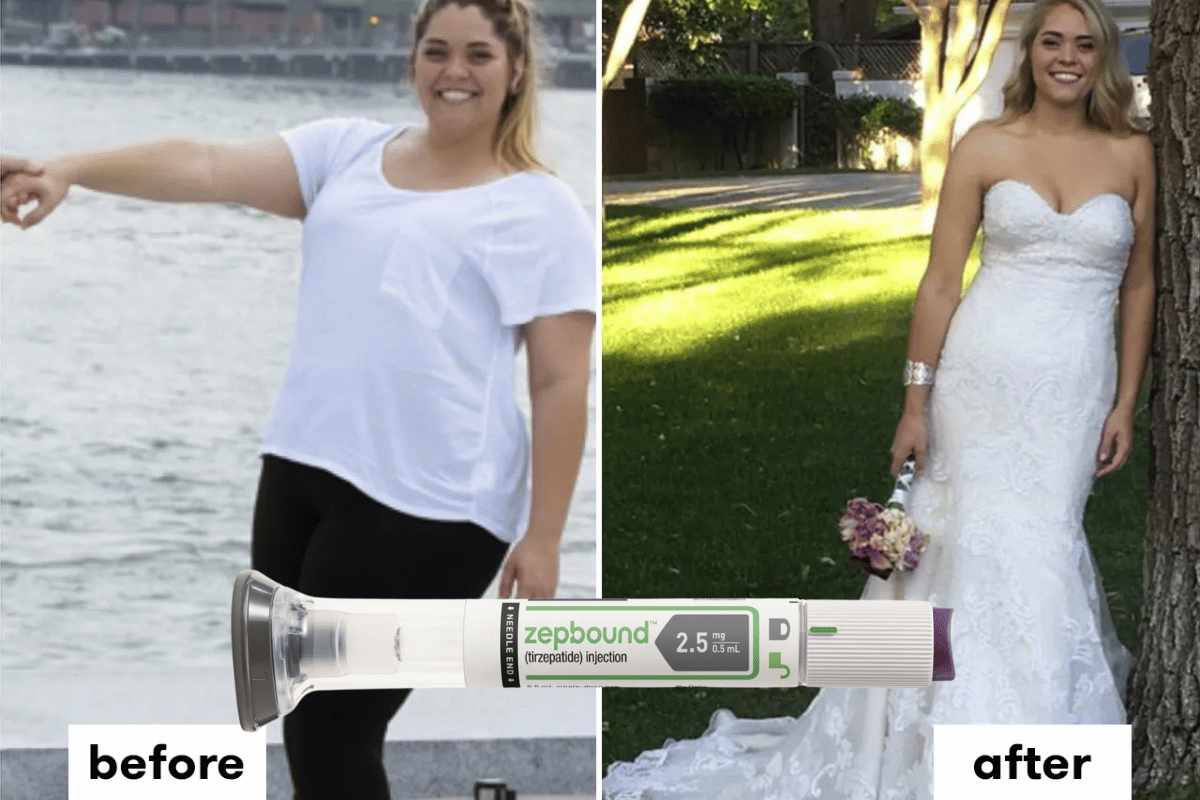As the year 2025 approaches, many individuals are seeking effective ways to achieve their weight loss goals, especially with the festive season in sight. This article provides a comprehensive guide to weight loss drug Zepbound, a cutting-edge medication that’s gaining popularity among those aiming to shed pounds. We’ll explore the science behind Zepbound, compare it to similar treatments like Ozempic and Mounjaro, and delve into its effectiveness, safety, and suitability for various individuals. Whether you’re curious about how Zepbound works, its potential side effects, or its role in weight loss for adults with obesity, this guide is your one-stop resource for informed decision-making.
What is Zepbound and How Does it Work?
Weight loss drug Zepbound is an innovative treatment designed to help individuals lose weight by addressing the root causes of overeating and metabolic inefficiency. It functions by regulating appetite and improving insulin sensitivity, which helps control cravings, enhances satiety, and promotes fat loss. This makes it a powerful option for individuals with obesity or those seeking long-term weight management solutions.
Understanding the Mechanism of Zepbound
The science behind weight loss drug Zepbound lies in its use of tirzepatide, a dual-action compound targeting GIP (glucose-dependent insulinotropic polypeptide) and GLP-1 (glucagon-like peptide-1) receptors. These receptors are essential in managing blood sugar levels and appetite. By activating them, Zepbound reduces hunger signals, increases feelings of fullness, and boosts energy expenditure, all while stabilizing blood glucose levels. This multifaceted approach is what sets Zepbound apart as a highly effective weight loss solution.
How Zepbound Compares to Ozempic and Mounjaro
When comparing weight loss drug Zepbound to other treatments like Ozempic and Mounjaro, several key parameters come into play:
- Active Ingredients: Zepbound features tirzepatide, which targets two receptors (GIP and GLP-1), whereas Ozempic and Mounjaro focus solely on GLP-1 receptors.
- Effectiveness: Clinical trials show Zepbound often leads to greater average weight loss, with results of up to 15-20% of body weight over a year.
- Mechanism: The dual-receptor action of Zepbound not only controls appetite but also enhances insulin sensitivity and energy expenditure more comprehensively than its single-receptor counterparts.
- Dosing and Administration: Zepbound typically requires a weekly injection, similar to its alternatives, but its unique formulation may improve patient adherence due to better appetite regulation.
By combining these benefits, Zepbound offers a more robust solution for individuals seeking significant weight loss results.
The Role of Tirzepatide in Zepbound
Tirzepatide, the key component of weight loss drug Zepbound, is what makes it uniquely effective. This dual-agonist molecule provides distinct benefits by targeting two hormonal pathways:
- Appetite Suppression: By activating GLP-1 receptors, tirzepatide reduces hunger, making it easier to control caloric intake.
- Enhanced Energy Expenditure: Through GIP receptor stimulation, it increases the body’s metabolic rate, encouraging fat burning.
- Blood Sugar Regulation: Tirzepatide improves insulin sensitivity, reducing blood sugar spikes and aiding overall metabolic health.
- Sustained Results: The combined effect of these actions promotes long-term weight loss and helps prevent rebound weight gain.
With these parameters working together, Zepbound emerges as a comprehensive option for managing obesity and achieving sustainable weight loss.
How Effective is Zepbound for Weight Loss?
Weight loss drug Zepbound has proven to be highly effective, offering substantial weight reduction for individuals with obesity or those seeking to manage their weight. Studies indicate that patients using Zepbound can achieve an average weight loss of 15-20% of their body weight over a year, especially when combined with proper dietary and lifestyle changes.
Average Weight Loss with Zepbound
On average, patients using weight loss drug Zepbound have reported losing around 15-20% of their initial body weight over a 12-month period. This level of effectiveness is a result of the drug’s dual-action mechanism, which suppresses appetite and enhances metabolism. For many individuals, this translates to shedding 30-50 pounds or more, depending on their starting weight and adherence to prescribed usage.
Clinical Trials and Weight Loss Outcomes
Clinical trials have demonstrated the robust effectiveness of weight loss drug Zepbound, with clear outcomes supported by data:
- Weight Loss Range: Participants in trials experienced weight reductions between 15-20% on average. Some individuals achieved even greater results with consistent use.
- Duration: Most studies were conducted over a 52-week period, allowing researchers to monitor long-term weight loss sustainability.
- Metabolic Improvements: Zepbound also significantly improved metabolic health markers, including better blood sugar control and reduced cholesterol levels.
- Comparison to Other Drugs: In head-to-head trials, Zepbound consistently outperformed similar medications like Ozempic in terms of the percentage of weight lost.
These parameters validate Zepbound’s position as a breakthrough treatment for weight management.

Success Stories: People Who Use Zepbound
Many users of weight loss drug Zepbound have shared inspiring success stories that highlight the drug’s effectiveness:
- Transformative Weight Loss: Patients who struggled for years with obesity reported losing significant weight, regaining confidence, and improving their overall health.
- Sustained Results: Unlike other treatments, Zepbound helped individuals maintain their weight loss long-term due to its ability to regulate appetite effectively.
- Improved Lifestyle: Users commonly mentioned feeling more energetic and finding it easier to adopt healthier eating habits and stay active.
- Enhanced Quality of Life: Beyond weight loss, Zepbound users reported benefits like improved self-esteem, better mobility, and reduced dependence on other medications for obesity-related conditions.
These real-life experiences underline the transformative potential of Zepbound for those committed to achieving their weight loss goals.
How to Use Zepbound Effectively
To maximize the benefits of weight loss drug Zepbound, it’s essential to follow your healthcare provider’s instructions precisely. Use it consistently at the recommended dose, incorporate healthy lifestyle changes like a balanced diet and regular exercise, and monitor your progress to ensure optimal results.
Recommended Dose of Zepbound
For weight loss drug Zepbound, the standard starting dose is typically 2.5 mg administered once weekly. Over time, your healthcare provider may gradually increase the dose to 10-15 mg per week, depending on your tolerance and weight loss goals. It’s essential to stick to the prescribed schedule to ensure safety and effectiveness.
Steps to Take Zepbound Safely
Using weight loss drug Zepbound safely requires attention to the following steps:
- Consult Your Doctor: Always begin by discussing your medical history and weight loss goals with a healthcare professional to determine if Zepbound is suitable for you.
- Follow Prescribed Dosage: Stick to the dosage schedule set by your doctor. Do not self-adjust the dose to avoid adverse effects.
- Monitor Side Effects: Be aware of potential side effects like nausea or fatigue. Report any severe reactions to your doctor immediately.
- Store Properly: Keep Zepbound in its original packaging, stored at the recommended temperature, to maintain its effectiveness.
- Stay Consistent: Administer the injection at the same time each week to ensure a steady therapeutic effect.
Adhering to these steps minimizes risks and enhances the benefits of Zepbound.
Combining Zepbound with Other Weight Loss Strategies
While weight loss drug Zepbound is highly effective on its own, combining it with other strategies can amplify results:
- Healthy Diet: Incorporate a balanced diet rich in vegetables, lean proteins, and whole grains while reducing processed foods and sugars.
- Regular Exercise: Engage in moderate physical activity, such as walking, cycling, or strength training, at least 3-4 times per week.
- Behavioral Changes: Practice mindful eating, manage stress, and maintain a consistent sleep schedule to support weight loss.
- Hydration: Drink plenty of water throughout the day to boost metabolism and reduce hunger cravings.
- Support System: Join a weight loss group or seek counseling to stay motivated and accountable.
By integrating these strategies with Zepbound, users can achieve faster and more sustainable weight loss while improving overall health.
Potential Side Effects of Zepbound
Like any medication, weight loss drug Zepbound may cause side effects, which can range from mild to more severe. The most common issues include nausea, vomiting, and fatigue. In rare cases, there may be concerns about thyroid tumors, making it essential to use Zepbound under a doctor’s guidance.
Common Side Effects of Zepbound Include Nausea
Nausea is one of the most frequently reported side effects of weight loss drug Zepbound. It’s typically mild and temporary, often subsiding as your body adjusts to the medication. To manage this, I recommend taking Zepbound with a small meal or avoiding heavy, greasy foods. Staying hydrated can also help alleviate discomfort.

Understanding Zepbound and Thyroid Tumors
There have been rare reports linking weight loss drug Zepbound to thyroid tumors in preclinical studies. While these findings are limited to animal studies, it’s important to be cautious. Here are the key parameters to consider:
- Personal History: Individuals with a personal or family history of thyroid cancer or Multiple Endocrine Neoplasia syndrome type 2 (MEN 2) should avoid Zepbound.
- Monitoring: Regular check-ups with your doctor are crucial. Any signs of thyroid swelling or difficulty swallowing should be reported immediately.
- Risk Assessment: The actual risk in humans is still being studied, but the benefits of Zepbound for weight loss often outweigh potential risks when used correctly.
By staying informed and working closely with a healthcare provider, users can mitigate these concerns.
Who Should Avoid Zepbound?
Certain individuals should avoid using weight loss drug Zepbound to ensure their safety. These include:
- People with Thyroid Issues: Those with a history of thyroid cancer or MEN 2 are not suitable candidates for Zepbound due to the potential risk of thyroid tumors.
- Pregnant or Breastfeeding Women: Zepbound has not been studied extensively in these populations, so its safety remains unclear.
- Severe Gastrointestinal Problems: Individuals with conditions like gastroparesis may experience worsened symptoms with Zepbound.
- Allergic Reactions: Anyone with a known allergy to tirzepatide or other components of Zepbound should avoid its use.
It’s critical to have a thorough medical evaluation to determine if Zepbound is the right choice for your weight loss journey.
Who Should Consider Zepbound?
Weight loss drug Zepbound is ideal for adults with obesity or those struggling with significant weight-related health issues, such as type 2 diabetes or high blood pressure. It’s best suited for individuals who have not achieved desired results through diet and exercise alone and who are committed to a comprehensive weight management plan.
Is Zepbound Right for You?
Determining if weight loss drug Zepbound is the right choice depends on your unique health needs and goals. If you’ve struggled with long-term weight management and have a BMI over 30 or a BMI over 27 with weight-related conditions, Zepbound could be a transformative option. I always emphasize discussing your medical history and weight loss objectives with a healthcare provider to ensure this treatment aligns with your overall health plan.
Zepbound for Weight Loss in Adults with Obesity
For adults with obesity, weight loss drug Zepbound offers an innovative solution to achieve meaningful and sustained weight loss. Here’s why it’s particularly effective:
- Dual-Action Mechanism: Zepbound targets both GIP and GLP-1 receptors, leading to improved appetite control, enhanced metabolism, and better glucose management.
- Clinically Proven Results: Studies show an average weight reduction of 15-20% over a year, making it one of the most effective options available.
- Comprehensive Health Benefits: Beyond weight loss, Zepbound improves related conditions like high blood pressure, cholesterol levels, and insulin resistance.
- Sustainability: The combination of appetite suppression and metabolic efficiency helps prevent rebound weight gain, promoting long-term success.
For adults with obesity who are committed to making lifestyle adjustments, Zepbound offers a powerful tool to support their journey.

Considerations for Women and Pregnancy
When it comes to women and pregnancy, the use of weight loss drug Zepbound requires careful consideration. Here are key parameters to evaluate:
- Pregnancy Safety: Zepbound is not recommended for use during pregnancy as its effects on fetal development are not well-studied. Women planning to conceive should discontinue use well in advance.
- Breastfeeding: Similarly, there is insufficient data on the safety of Zepbound during breastfeeding, so alternative weight management strategies are advised.
- Reproductive Age Women: Women of reproductive age should use effective contraception while on Zepbound to avoid potential risks during an unplanned pregnancy.
- Post-Pregnancy: After pregnancy, Zepbound may be reconsidered for weight loss in consultation with a healthcare provider, especially if weight-related health conditions persist.
By addressing these considerations, women can make informed decisions about incorporating Zepbound into their weight management plan.
Frequently Asked Questions (FAQs)
What is Zepbound?
Weight loss drug Zepbound is a prescription medication designed to help individuals lose weight by regulating appetite, enhancing metabolism, and improving blood sugar levels. It uses tirzepatide, a dual-action ingredient, to achieve these effects.
How does Zepbound work for weight loss?
Zepbound targets GIP and GLP-1 receptors in the body, which control hunger and metabolic processes. By suppressing appetite and increasing energy expenditure, it promotes sustained weight loss.
Who can use Zepbound?
Zepbound is recommended for adults with a BMI over 30 (or over 27 with weight-related conditions) who have struggled with weight loss through diet and exercise alone.
How much weight can I lose with Zepbound?
Clinical studies show that individuals using weight loss drug Zepbound can lose an average of 15-20% of their initial body weight over 12 months, especially when combined with healthy lifestyle changes.
What are the common side effects of Zepbound?
The most common side effects include nausea, vomiting, diarrhea, and fatigue. These are usually temporary and subside as the body adjusts to the medication.
Is Zepbound safe during pregnancy or breastfeeding?
Zepbound is not recommended for use during pregnancy or breastfeeding due to a lack of sufficient safety data. Women planning to conceive should discontinue its use in advance.
How do I take Zepbound?
Zepbound is administered as a once-weekly injection. Your healthcare provider will determine the appropriate starting dose and adjust it as needed.
Can I combine Zepbound with other weight loss strategies?
Yes, combining Zepbound with a balanced diet, regular exercise, and healthy lifestyle habits can enhance its effectiveness and help achieve long-term weight management goals.
What makes Zepbound different from Ozempic or Mounjaro?
While Ozempic and Mounjaro target only GLP-1 receptors, Zepbound uses tirzepatide to target both GIP and GLP-1 receptors, offering a dual-action mechanism that often results in greater weight loss.
Who should avoid using Zepbound?
Individuals with a history of thyroid cancer, Multiple Endocrine Neoplasia syndrome type 2 (MEN 2), severe gastrointestinal issues, or allergies to Zepbound’s components should avoid using the medication.
How long does it take to see results with Zepbound?
Most users start seeing noticeable weight loss within the first 4-8 weeks of treatment, with more significant results developing over several months of consistent use.
Do I need a prescription for Zepbound?
Yes, Zepbound is a prescription medication. Consult a healthcare provider to determine if it’s the right option for your weight loss journey.
Leave a Reply